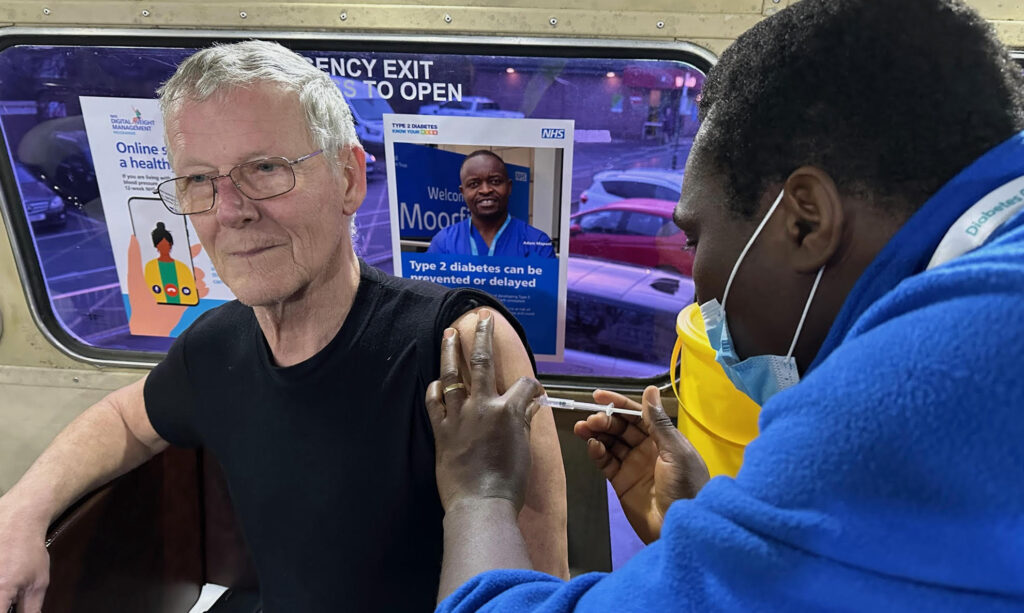Diabetes News
Diabetes News
Get the latest on our diabetes news
Autumn and winter COVID and Flu vaccines.
COVID and Flu vaccines will be offered to patients eligible between September and December.
We have partnered with the NHS to bring the vaccination to where you are via the mobile NHS mobile and Wellbeing bus.
Want to know where we are? Use the link below for more information.
https://www.kentandmedway.icb.nhs.uk/your-health/coronavirus/health-and-wellbeing-bus

Diabetes Consults partners with Rochester Primary Care Network (PCN)
Diabetes Consults is working with Rochester Primary Care Network (PCN) to pilot a service called Making Every Contact Count (MECC) along with the covid-19 vaccinations. The aim of the service is to reach the local communities through the well-being bus across Kent and Medway. By making every contact count we focus on health checks such as Blood pressure checks, Random blood glucose checks, Body Mass Index, sign posting to services such as smoking cessation, cancer awareness and many more.
Recently we had the pleasure of having the Chief Medical Officer Kate Langford of Kent and Medway Integrated Care Board (ICB), and some members of the regional team (Helene Anderson and David Hellier) on the wellbeing bus at one of our locations.
Photos from the event




